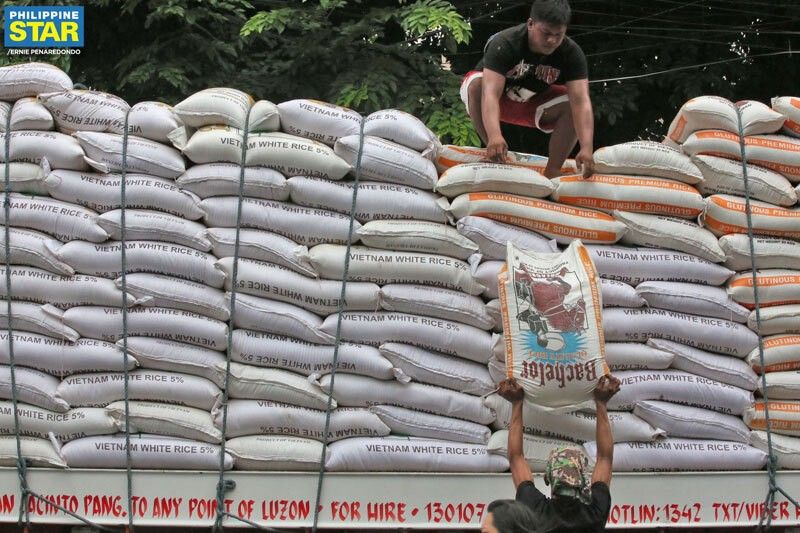New House bill gives president emergency powers during rice shortages

MANILA, Philippines — A lawmaker has filed a new House bill granting the president emergency powers during "extreme" rice shortages or price fluctuations and additional government interventions to address supply-side constraints.
House Bill 9030 was filed by Rep. Stella Quimbo (Marikina City, 2nd District) on the first day the rice price cap took effect.
In broad strokes, the proposed Rice Emergency Response Act targets rice supply sufficiency, increases subsidies for rice farmers and impoverished households and imposes stiffer penalties on hoarders.
“The Philippine Rice Emergency Response Act serves as an additional measure the government may utilize to address extreme cases of the dwindling supply and soaring prices of rice,” Quimbo said in the explanatory note of the bill.
In the short term, the measure aims to give the government “ample authority to address immediate concerns of a rice shortage, insulating the Filipino public of its adverse effects,” Quimbo added.
What does the bill propose?
In response to surges in the price of rice, the government can enact a series of measures aimed at stabilizing the rice market. This includes the following:
- reduction or suspension of rice tariffs under specific conditions
- authorization for the National Food Authority (NFA) to import rice for buffer stocking, and
- the allocation of unutilized funds from various government programs to provide subsidies for farmers, consumers and retailers.
Under HB 9030, the government can consider re-programming the use of the Rice Competitiveness Enhancement Fund (RCEF), including the possibility of utilizing it for cash assistance to support farmers and other suppliers during this critical period.
Quimbo said that this differs from a price ceiling imposed by the government by adding additional measures that expand the supply of rice, increases productivity and enhances the enforcement against hoarders.
The measure imposes higher penalties for hoarding and other acts of illegal price manipulation. Specifically, those guilty of hoarding can be imprisoned for a minimum of 10 years to a maximum of 30 years, up from the five to 15 years of jail time in current laws.
Hoarders will also be fined a minimum of P1 million P100,000 million pesos, up from P5 thousand to P1 million in current laws.
Government officials found guilty of price manipulation are also given the maximum penalties, Quimbo added.
Farmers’ losses
In a TeleRadyo interview, the president of the Grains Retailers Confederation of the Philippines Inc. Eastern Visayas chapter said on Tuesday that local grain retailers could lose as much as P40,000 weekly due to the losses incurred from the rice price cap ordered by President Ferdinand "Bongbong" Marcos Jr.
Frederic Dy said in the interview that local grain retailers in Tacloban City have closed shop to avoid selling the grains at a loss due to the P41 to P45 price cap. This would also be exacerbated by operational costs such as rent and manpower expenses.
The House of Representatives will earmark P2 billion to provide aid to rice retailers who, like Dy explained, bought stocks of rice above the price cap before it took effect.
House Speaker Martin Romualdez on Monday said he directed the House appropriations panel chairperson, Rep. Elizaldy Co, to coordinate with the Department of Budget and Management for the swift allocation of P2 billion to support the rice retailers.
Marcos on Monday also said the government’s relevant agencies would list the rice retailers affected by the price cap and give them financial assistance equivalent to the losses they may sustain.
The president said on Monday that hoarding and smuggling are the sole reasons behind inflated prices of the household staple, contradicting his own executive order on the rice price cap where "global events" were also cited as one of the economic factors.
- Latest
- Trending






























